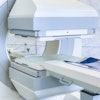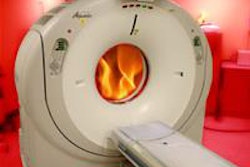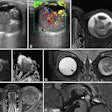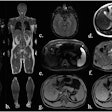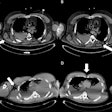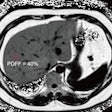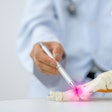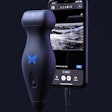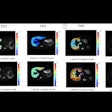
Do your toes curl at the inappropriate or repetitive use of the phrase "CT scan"? Are you angry when someone orders an investigation rather than requesting it? Do you think routinely letting someone else verify your reports is lazy? And have you ever said, "Where are the cows?" in response to the phrase "lung fields"?
Now read the following:
They tend to obsess over the minutiae of subjects, and are prone to giving long, detailed expositions, and the related corrections, and may gravitate to careers in academia or science where such obsessive attention to detail is often rewarded.
 Dr. Paul McCoubrie is a consultant radiologist at Southmead Hospital in Bristol, U.K.
Dr. Paul McCoubrie is a consultant radiologist at Southmead Hospital in Bristol, U.K.
Rather than describing some of your colleagues, this text is actually describing the behavior of those with Asperger's syndrome (or high-functioning autism). Obsessive compulsive personality disorder is also in part characterized by a form of pedantry -- or slavish attention to detail -- with the correct following of rules, procedures, and practices.
Pedantry typically has negative connotations, implying a personality defect. Moreover, such attention to detail is thought unnecessary and irrelevant in clinical practice.
However, it is my contention that radiologists are innately pedantic and rather than being embarrassed by it, we should embrace it. We all want to raise our standards of practice. Surely sloppiness of thought, word, and deed is consistent with poor clinical practice? The term "pedant" comes from the Latin paedagogare, "to teach," derived from Greek terms for "child" and "to lead." So, its roots are honorable.
Admittedly, there are varying degrees amongst our ranks. And it is the degree of pedantry that seems to be the key. This is summarized well in Fowler's Modern English Usage:
The term, then, is obviously a relative one: My pedantry is your scholarship, his reasonable accuracy, her irreducible minimum of education, and someone else's ignorance.
A touch of pedantry when it makes a clinical difference seems entirely appropriate and defensible. But how far do we go? Dr. Paul Goddard, my former head of training in Bristol, U.K., had a frequently espoused maxim that "radiologists should be able to explain absolutely everything on the film." The other end of this thought spectrum is all knowledge is a personal construct; life is uncertain and grayscale; and that one cannot be truly certain of anything. I guess most of us would want to be up at Goddard's end of the spectrum -- quite an undertaking, perhaps, but surely the aim of an expert radiologist.
I argue that the innate pedantry in radiology comes from our training. Our tests are ranked by their ability to be specific and sensitive. Learning curves, receiver operating characteristic (ROC) curves, operator dependencies, etc. are part of our working culture. We are trained and paid to be experts in our clinico-pathologico-radiological knowledge, as well as our visuoperceptual and psychomotor skills. Our primary medium is the written radiological report. Our opinion should be as accurate as possible, in both the language and content of our reports.
I see nothing wrong with a degree of pedantry. Moreover, I am faintly proud of it. I do feel a bit embarrassed when it gets the better of me in a meeting or other public forum. A bit like wind, I suppose.
Dr. Paul McCoubrie is a consultant radiologist at Southmead Hospital in Bristol, U.K.
The comments and observations expressed herein do not necessarily reflect the opinions of AuntMinnieEurope.com, nor should they be construed as an endorsement or admonishment of any particular vendor, analyst, industry consultant, or consulting group.
